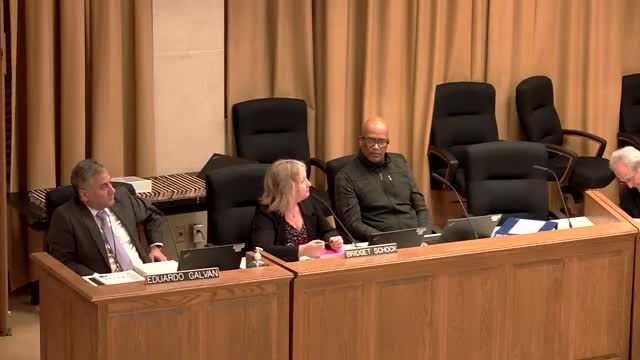Agr program midyear report: modest reading gains in some AGR grades; Lexia pilot discontinued
Get AI-powered insights, summaries, and transcripts
Subscribe
Summary
Administration provided the midyear Achievement Gap Reduction (AGR) report required by DPI. The report noted small increases in trimester 1 proficiency for some AGR grades in reading, broad use of district materials, 23 teachers completing LETRS and 86.5% AGR attendance, and said Lexia contract had not been renewed.
The committee received a midyear update on the Achievement Gap Reduction (AGR) program, an initiative funded through the Wisconsin Department of Public Instruction to support K5 through third-grade learners in high-need schools.
Administration summarized program design and findings: AGR operates in 63 schools (plus one non-instrumentality charter) across MPS regions and serves 10,517 students (district figures presented by Allison Foyer, Early Childhood Supervisor). The cohort is demographically diverse: 22.9% English learners, 23.6% special education and 88% economically disadvantaged.
Key points from the update included: - The AGR program provides class-size reduction (Kthrough 5) and instructional coaching; monitoring uses district walk-throughs and report-card data because the district does not use a single, uniform Kthrough 3 progress monitoring tool across all schools. - Trimester 1 comparisons (FY24 to FY25) showed small increases in the percentage of AGR students rated proficient or advanced in reading for first, second and third grades (roughly a 2% increase in some grades), though the presenters cautioned that report-card grades are subjective and districtwide implementation varies. - Monitoring results included 848 district walk-throughs in AGR classrooms to date and 279 classroom visits for counting-collections math work; 75% of AGR teachers were using district-provided math materials and 83% of AGR Kthrough 3 teachers were engaged in LETRS training; 23 AGR teachers had completed LETRS modules and 88% passed letters checks for understanding. - AGR attendance was reported at 86.5% and student engagement measured on walk-throughs was 24% (administration noted engagement remained a challenge).
Committee members raised questions about data sources and objectivity. Director Gokul Gandhi asked for recommendations on restoring districtwide benchmarking (for example, Lexia had been used in prior years but the contract was not renewed); administration said Lexia had been piloted in a subset of schools and was not currently contracted districtwide. Directors asked administration to return with objective benchmarking options and cost estimates. Administration committed to follow-up material and added that AGR will continue training, coaching and monitoring through the remainder of the year.
